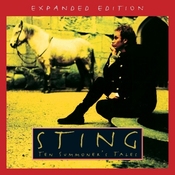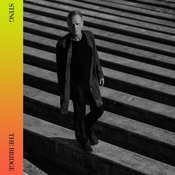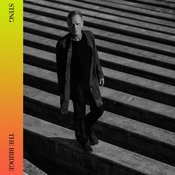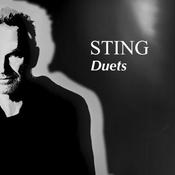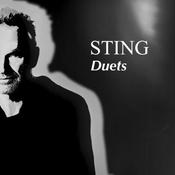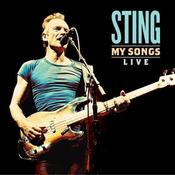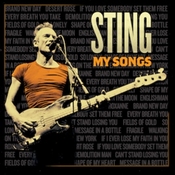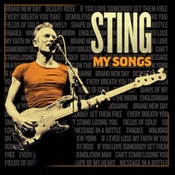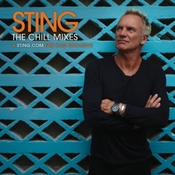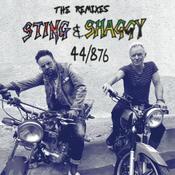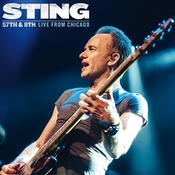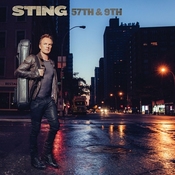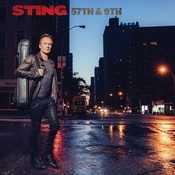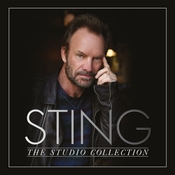Songs From The Labyrinth
- Walsingham lyrics
- Can She Excuse My Wrongs? lyrics
- ''Right Honorable: as I have bin most bound unto your honor...'' lyrics
- Flow, my tears (Lachrimae) lyrics
- Have you seen the bright lily grow lyrics
- ''...Then in time passing on Mr. Johnson died...'' lyrics
- The Most High and Mighty Christianus the Fourth, King of Denmark, His Galliard lyrics
- The lowest trees have tops lyrics
- ''... And according as I desired ther cam a letter...'' lyrics
- Fine knacks for ladies lyrics
- ''...From thenc I went to Landgrave of Hessen...'' lyrics
- Fantasy lyrics
- Come, heavy sleep lyrics
- Forlorn Hope Fancy lyrics
- ''...And from thence I had great desire to see Italy...'' lyrics
- Come again lyrics
- Wilt thou unkind thus reave me lyrics
- ''...After my departures I caled to mynde our conference...'' lyrics
- Weep you no more, sad fountain lyrics
- My Lord Willoughby's Welcome Home lyrics
- Clear or Cloudy lyrics
- ''...men say that the Kinge of Spain is making gret preparation...'' lyrics
- In darkness let me dwell lyrics

Soundbites
"Dowland, for me is the music of self reflection. Self reflection is a much undervalued concept in modern society. Self reflection leads to melancholy and that's a good emotion. It's not like depression which is a serious clinical problem. Melancholy leads to reflection, it leads to a sense of humility, a sense of kindness, of compassion - so we need it."
Sting, BBC2 'The Culture Show', 09/06
"I wanted to try and present the songs within a context that might help them - which is why I decided to read the extracts from the letter. It was important for me to put the songs within this historical and political context of a man struggling to make a living as an artist in a very difficult time."
Sting, BBC Music Magazine, 10/06
"For me, they're pop songs written in 1603 or whatever - beautiful melodies, fantastic lyrics, great accompaniments. Pop music is very conservative - you're not really allowed to have flattened fifths and you've got to have a certain length of intro and chorus. But the rules are there to subvert in order to maintain your integrity as a musician. I feel that my job as a pop artist is to develop as a musician and bring into my sphere elements that aren't necessarily pop - more complex intervals, complex time signatures..."
Sting, BBC Music Magazine, 10/06
"Having listened to a lot of Dowland records, I thought that no one was doing what I could do: I don't have that trained operatic voice, but this music was composed around 1600 and the bel canto style wasn't invented until 100 years later when they had a full auditorium which encouraged a certain vocal technique. I imagine people would have sung without that technique. I feel there is an intimacy to this music and I can do something that's really me - and still, I hope, respect the music."
Sting, BBC Music Magazine, 10/06
"For me it's all about development - becoming a better musician, a better singer, a better songwriter... a better person. And you improve by putting yourself at risk creatively or entering a milieu that may seem uncomfortable at first. If you think you know about arranging, listen to Ravel. If you think you're a composer, then listen to Bach and be humbled; but know you can get better. I didn't think the disc was worth releasing until the last minute. I was thinking 'I can't see this becoming a record, and me taking this risk'."
Sting, BBC Music Magazine, 10/06
"If people like it, public or critics, then that's the cream on the cake. If I was doing a Dowland record to make money, you'd shoot me! I did it out of love, I did it out of curiosity, a sense of adventure... I can't really explain why. My instinct told me it was right for me."
Sting, BBC Music Magazine, 10/06
Backgrounder
Review from The Newark Star Ledger by Bradley Bamburger
John Dowland, virtuoso lutenist and writer of timeless songs, was a master of melancholy, channeling both his own dark personality and that of the Elizabethan/Jacobean age (as unstable as our own) into his music.
In his way, Sting is an inheritor of this English songwriting tradition; this disc sees the 55-year-old rock singer paying ambitious, heartfelt tribute to his predecessor.
With his plangent tone and idiomatic diction, Sting has the measure of this music's soul as well as any early-music singer (although he might have sung "straighter" to even better effect). His versions of such doleful songs as 'Flow My Tears' are deeply moving. And the way he multi-tracks his vocals for consort passages is ingeniously musical, with the upbeat songs sounding more persuasively modern than usual. He includes a rarely heard ringer, too, the sweetly sad 'Have You Seen the Bright Lily Grow?' by Robert Johnson, a Dowland contemporary.
With ambient music behind him, Sting also reads a clutch of Dowland's absorbing letters, mostly beseeching or despairing of a position in the Queen's ensemble. (His Catholicism likely ruled him out.) While the readings may strike some as overly "thespian," they take on real drama with repeated listens. Sting's lutenist partner, the Sarajevo native Edin Karamazov, provides tangy flair. This is a brave, beautiful album.
Review from The Los Angeles Daily News by Steven Rosenberg
Sting is now a true Renaissance man. As in Elizabethan, with lutes and the music of 16th-century composer John Dowland. The pop singer of today tackles what he rightly sees as the pop music of the late 1500s - with substantial and well-wrought help from Serbian lutenist Edin Karamazov. It was he who introduced Sting to the works of the composer who captured the hearts of the people, if not Queen Elizabeth I herself (he was Catholic; complications ensued).
Sting did learn to play the lute for this recording but wisely leaves the heavy fingering to Karamazov, who plays Dowland clearly and rhythmically. The songs are tied together by Sting's readings of Dowland's letter to one of QEI's courtiers, pleading for a position at court - and possibly his very life. The narrative is powerful and will make for a compelling live performance, should they take this show on the road.
Sting worked with a voice coach to capture the tone and breathing required for Renaissance vocalizing. He's out on a limb here, in territory too dangerous for almost every other rock star out there. And danger is what true rock, and in this case Elizabethan pop, is all about.
Review from Rolling Stone by James Hunter
Here, Sting and Lutenist Edin Karamazov construct "a soundtrack in words and music" to the life of John Dowland (1563-1626), the Catholic English composer and musician who was jilted by his own queen as he became a star in European courts. Sting conceives Dowland as a Renaissance Nick Drake, a tortured dude who transcends personal agony with sublime composition. For much of the album, Sting delights in making nostalgic music that sounds exquisitely weathered - you can almost hear the Elizabethan leaves rustling in the background. Things get more interesting, though, when he finds the timelessness in the music. On 'Come Again', 'Wilt Thou Unkind Thus Leave Me' and Dowland's famous 'In Darkness Let Me Dwell', Sting tables his ponderous lower range and invests these crack tunes with skill and soul. This is not old music for new Jaguar drivers.
Review from The Washington Times by Torrance
The late science-fiction writer Philip K. Dick prophesied that songs by the Elizabethan composer John Dowland would one day by covered by a pop singer named Linda Fox, a thinly disguised version of Linda Ronstadt.
Such a scenario seemed less likely to materialize than Mr. Dick's predictions of a police state - but now a single-monikered pop phenomenon has released an album of Dowland songs on one of the world's foremost classical music labels.
Judging from the tale Sting tells in his intelligent liner notes, the pairing was inevitable.
The actor John Bird first mentioned Dowland's name to Sting in 1982, when the musician was performing at a benefit concert. In the 24 years since, it seems a handful of Sting's friends and colleagues have suggested the doleful tunes of the composer-singer-lutenist might suit one of the most melancholy of rockers.
They were right. In those notes, Sting tries to explain how the work of the composer, who died in 1626, might be relevant to music today: "Born in 1563, John Dowland was perhaps the first example of an archetype with which we have become familiar, that of the alienated singer-songwriter."
He does a better job simply by singing the songs. Sting's sometimes traditional, sometimes creative interpretations of about a dozen Dowland songs make it abundantly clear that Dowland was a dynamic artist. "Doleful Dowland," as he might be called, did a lot more than pen a bunch of laments. His work was part of a renaissance in British culture - his lyrics sometimes echo the poetry of another famous Elizabethan, Shakespeare - whose effects can be felt in British music to this day, whether most youngsters have heard of him or not.
Sting's distinctive voice melds smoothly into an old-fashioned rendering of a song such as 'Clear or Cloudy'. However, he also stretches himself on Dowland's most famous song, 'Flow My Tears'. Who thought Sting could sound like anything but Sting?
Sting's voice, often beautiful, sounds even better when harmonizing with itself, as on 'Can She Excuse My Wrongs', which features lyrics from the doomed Earl of Essex.
Sting's accompanist is the Bosnian lutenist Edin Karamazov. Let's hope his work with Sting brings him to greater notice on this side of the Atlantic. On instrumentals such as 'Forlorn Hope Fancy', his work is a lot more than a simple accompaniment. It sounds utterly modern on this track but with much respect for the composer.
On 'Labyrinth', Sting is sometimes silky, sometimes whispery but always focused on what the song requires. Not every song is a success, but this is a strong album and a welcome diversion for the pop singer, who can sometimes write a timeless-sounding song such as 1999's 'Desert Rose'.
Sting's release comes just weeks after the latest classical offering from Sir Paul McCartney. Mr. McCartney's work is original; Sting's is not. However, in mixing the modern with the almost medieval, Sting may do more to introduce rock fans to the pleasures of art music.
Review from The Daily Express
There's no denying Gordon Sumner knows how to set himself a challenge. Here, he puts aside the pop to tackle the music of Elizabethan songwriter and lutenist John Dowland, who was court player to James I in the early 17th century. Accompanied by renowned player Edin Karamazov, Sting works his way through a number of Dowland's songs, interspersing proceedings with readings from his letters. Although it never quite takes off the way it should, it's an admirable effort with the odd moment of beauty.
Review from The Daily Telegraph
This CD of songs and lute pieces by the great Elizabethan composer John Dowland is the fruit of a 25-year obsession for Sting. He's treated the project with immense seriousness, soaking himself in the history and culture of the period. And he's learned to play lute with virtuoso lutenist Edin Karamazov, who accompanies Sting and also plays several of Dowland's wonderful fantasies and dances.
Dowland has been recorded by many great classical and "early music" singers, but Sting hasn't been intimidated by this. In fact, one of the refreshing things about this CD is the complete lack of classical or "early music" fustiness. Admittedly, it's a jolt when you first hear Sting's husky, slightly drawling Americanised delivery of these carefully wrought songs.
But Sting's pop-singer version of American is in its own way as artificial as Dowland, so it works amazingly well. My main complaint is that Karamazov and Sting appear to be in different aural spaces, which spoils the sense of intimacy. But all credit to Sting for turning this fascinating figure into a living, breathing contemporary.
Review from The Denver Post by Jon Denzel
With artists like Rod Stewart and Elvis Costello taking stylistic left turns from genres that put them on the map, it's no surprise that mercurial soul Sting would do the same. What is surprising is his intense devotion to the excursion. On 'Songs From the Labyrinth' he interprets the work of John Dowland, a composer from Elizabethan England.
Sting stays true to the phrasing of the originals, expertly switching between 30-second instrumentals and doleful laments of pop-song length. 'Fine Knack for Ladies' dials down Edin Karamazov's omnipresent lute for multitracked vocals, while 'Clear or Cloudy' features a breathy, upbeat melody around which Sting clearly relishes wrapping his husky pipes.
Review from Fox 411 by Roger Friedman
Sting loves to pick at strings. Everyone remembers him from Police videos playing his favorite instrument, the upright bass. It's the sound that gave the Police songs their timeless originality.
But last year, Sting decided to try a new stringed instrument - the lute. You don't hear a lot of lutes on pop records. You hear mandolins, but no lutes. They are usually left to classical musicians with a lot of training.
You know that wouldn't stop Sting. The result is a new album that drops next month, called 'Songs from the Labyrinth', for which Sting has used the songs of 16th century composer John Dowland for his foundation.
A more seasoned and veteran lutenist - yes, that's what they're called - named Edin Karamazov plays on the CD, but Sting is right in there (this is similar to how Billy Joel put out his own classical CD, having Richard Jewell perform the work).
And how is Sting on the lute? He sounds good to me, but when I asked him about it recently, he did say that Karamazov sometimes winces as his pupil forges ahead.
'Labyrinth' is a very ambitious project, and it will not be to everyone's taste. Certainly, if you're looking for a hit single, it's not here. But I have a prediction - 'Songs from Labyrinth' will turn out to be the biggest Christmas CD of the year.
It has that feeling, of mulled wine and Yule logs in fireplaces. Sting told me he didn't think it would sell, but my guess is he's wrong. It's going to become a perennial.
What makes pop artists want to make these albums? (Elvis Costello takes side trips all the time, as does Paul McCartney). The answer of course is boredom with the demands of a regular album schedule, and the desire to stretch in a new direction.
In Dowland, Sting has found something of a soul mate, too. His "lyrics," written in the early 1600s, fit the rocker's voice well.
Here's another prediction: even though "hit single" is not the first thing that comes to mind with 'Labyrinth', watch for a short number - all 23 tracks are short compared to modern pop music - called 'Fine Knacks for Ladies' to turn into a sleeper on "lite" radio stations. Sting's vocal is superbly rich and humorous, much like his much-loved 'Englishman in New York'.
Some other tracks to watch: 'Clear or Cloudy' and 'Can She Excuse My Wrongs?' (Wait 'til tea leaf readers get a hold of the latter! But Sting's wife, Trudie, needn't worry).
So bravo for Sting. It should be interesting to hear how all of this influences his next rock album.
Review from The Miami Herald by Enrique Fernandez
American novelist, poet and mock memoirist (My Life in CIA) Harry Mathews once said John Dowland was the John Lennon of the Elizabethan age. If so, and having lost Lennon, isn't an art-pop singer like Sting the right modern interpreter of Dowland's compositions? Early music buffs may be put off by Sting's smoky voice mouthing the lyrics, but given the wonderful appeal of Dowland, it can be pleasant to hear vocals with echoes of the tavern and the boudoir in music from an era enthusiastic about both venues. There can be no argument, however, with master lutenist Edin Karamazov's work on the archlute -- even when joined in duet by his apprentice Sting - in the instrumental numbers.
For songs like the classics 'Come Flow My Tears' and 'Come Again', we are listening to not just early music but early pop, with some elegant naughtiness cached in double entendres as well as heartfelt alienation worthy of any contemporary singer-songwriter - illustrated by readings from a Dowland letter. Dowland rocked. Sting gives it his best, and when his voice breaks into a rocker's loud, missed note, it's a reminder that these are not museum pieces. They're songs.
Review from The Oregonian by David Stabler
Death, where is thy Sting?
Check the recording studio, where the pop singer has just finished an album of sad-sack Renaissance songs about death, dying, tears, darkness, sin and misery.
Not just any sad-sack songs, either. Prozac poster boy John Dowland's 400-year-old gems for voice and lute stand today as model portraits of grief, calling for a different sound from Sting, an intensely personal timbre that goes deep into the heart of darkness.
Not the usual fodder for pop crossover singers.
So let's say upfront: Sting is not an ideal choice for this music. His voice is raw and unnuanced. It lacks color, subtlety and the agility to bring out the shades of grief Dowland so masterfully evokes.
I was smugly appalled the first time I listened - another embarrassing crossover. But the more I played 'Songs From the Labyrinth', the more Sting's rough qualities grew on me. Coarseness actually gives the songs some historical authenticity in what was, after all, a rough-and-ready age - Dowland was born a year before Shakespeare.
Unvarnished singing suggests an emotional truth that grounds the music in unexpected ways. Singers back then probably didn't have the refined sheen of today's classical singers.
Vocal purists will dismiss Sting and return to their favorite Dowland singers such as Emma Kirkby and Julianne Baird. Unfortunately, their CDs are out of print. Try Catherine King on Naxos or 'Earth, Water, Air and Fire' on ASV. But I admire Sting for his humility in the way he approached Dowland.
Unlike other pop stars such as Paul McCartney, who splash around in classical music like it's a wading pool (see accompanying story), Sting immersed himself in Dowland for two years. He took voice lessons and sought vocal advice from Richard Levitt of the Schola Cantorum in Basel.
"I wanted someone from the serious music side to advise me," Sting told "Early Music America" magazine. "I'm not a trained singer for this repertoire, but also thought that maybe there was something I could do in my own style that would be relevant, respectful and new."
Sting even learned a thing or two from Dowland. "He says a great deal without saying too much. He's very pithy, and his musical ideas stand out like little gems in the dark. I'd like to assimilate that into my own work - being less verbose, less flowery."
A good example of simplification - and my favorite of the collection - is the song 'Have You Seen the Bright Lily Grow'. Against noble lute chords, Sting sings a soft scale that rises like vapor. The power of the song lies in its unaffected grace, and Sting's unadorned voice suggests its innocence.
A couple of Dowland's most famous songs appear, including a planed-out 'Flow My Tears', with Sting adding some weird vowel sounds, and the more upbeat 'Come Again, Sweet Love Doth Now Invite'. Both songs lack intensity, particularly on 'Come Again's' rising sequence "To see, to hear, to touch, to kiss, to die, with thee again, in sweetest sympathy." But Sting overcomes his caution enough to give the song some energy.
What he can't seem to muster is enough breath to form the lines into shapely phrases. He's a blunt breather, a significant drawback. Edin Karamazov is the capable Sarajevan lutenist who contributes nimble playing to a few solo tracks. Sting plays the archlute himself (a larger, double-strung lute) and reads excerpts from a Dowland letter.
I'm guessing we won't be hearing Sting playing 'Songs of the Labyrinth' on an arena tour. It's not going to go platinum. But his take on these famous musical melancholias is an intriguing alternative to mainstream classical choices.
Review from Barnes & Noble by Scott Paulin
More than two decades into his solo career, Sting's musical explorations have already taken him farther afield than fans of his early work with the Police could have predicted. Even so, his latest venture comes as a surprise, and ultimately quite a pleasant one. On 'Songs from the Labyrinth', Sting reaches back across the centuries to interpret songs by John Dowland (1563-1626), one of the greatest composers of Elizabethan England. Dowland created some of the most potent melancholy in all of musical history; the deep emotions and dark beauty of songs like 'Flow, My Tears' or 'Come, Heavy Sleep' communicate themselves very clearly to a contemporary audience, and there's no cause to wonder at Sting's attraction to them. Part of this album's appeal is its simplicity: Sting's vocals are joined only by the exquisite lute playing of Edin Karamazov - who also solos on some of Dowland's meditative lute pieces - and are interspersed among some very brief spoken interludes from the composer's letters. Sting doesn't pretend to be a classical singer, but the eloquent melodies are intact, despite a gravelly grain and an occasional strain in his voice - something that actually turns out to be ideally expressive when he sings a line like "Oh let me living die, till death do come," in the devastating closing song, 'In Darkness Let Me Dwell'. The only moments that feel really indebted to pop are Sting's multi-tracked vocal harmonies on 'Fine Knacks for Ladies' and a few other songs that momentarily bring the Beach Boys to mind. Yet as the album progresses, you appreciate more and more how much Sting's pop talents and his very personal approach allow him to penetrate and animate the inner emotions and meanings of Dowland's timeless music.
Review from The Buffalo News by Jeff Miers
Sting's begging for it. An album of songs from Elizabethan composer John Dowland, performed solely by voice and lute? Is this supposed to deflate the man's image as pompous and self-important?
For many, 'Songs From the Labyrinth' will appear as Sting's "Spinal Tap" moment, his own personal rendition of that fictional band's lowering of a Stonehenge model onto their concert stage. This all makes great fodder for jokes at the expense of the artist formerly known as Gordon Sumner. "Fetch me a fair wench and a flagon of mead!" and all of that.
But any even semi-scholarly approach to this album reveals it to be full of hidden charms and even (gasp!) a healthy sense of humor. That Sting's sense of humor rings in sympathy with that of a 16th century classical court composer casts no small amount of light on his status as misunderstood artist. The guy often seems too smart for his own good, or at least, for the good of his "pop star" self.
'Songs From the Labyrinth' is the most nakedly musical, least commercial Sting recording since his first post-Police effort, 'The Dream of the Blue Turtles'. That album employed then-young jazz musicians Branford Marsalis, Kenny Kirkland and Darryl Jones in service of a new pop music based on jazz harmony and scathing improvisation.
Dowland's music is close to the exact opposite of this African-American-meets-pop hybrid - it's about the whitest music ever written, precisely because it was often composed to please the reigning sovereign of the day, and because its tonality and rhythms can't help but sound a bit "skipping through the forest in tights and slippers" to the modern ear.
To "get" the dense 'Songs From the Labyrinth' requires serious investment, which likely means that the record will appeal only to serious Sting/Police fans willing to make the required leap of faith, or trendy types who will relegate it to background music during wine and cheese parties. Either way, the record comes up smelling mostly like roses, though occasionally the stench of self-import is a bit thick.
Sting hooked up with one of the world's true lute virtuosos, Edin Karamazov, for the difficult task of embodying the man the singer calls "the first alienated singer/songwriter." Karamazov's playing is simply sublime, elevated, transcendent throughout the record. Mostly, Sting's singing - though he's admittedly a tourist in this classical world, albeit a convincing and talented one - is also reliably impressive. And Dowland's compositions are at turns raucous, bawdy, lyrical, and harmonically bewildering. There is much to be learned here, if you're willing to dig deep.
The opening tidbit 'Walsingham' reveals Karamazov's elegant, lyrical style immediately, and also sets the scene, which is more Shakespearean farce than modern pop. 'Can She Excuse My Wrongs' sounds like a Sting song in some ways, its lilting meter and perfect elocution not unlike something that might've appeared on 'Ten Summoner's Tales', minus the pop structure. A bit more than a minute into the piece, Sting astounds with a multi-tracked bit of vocal polyphony, straight-up 16th century church music that the man somehow makes sound contemporary - no small feat.
The spoken-word interludes - excerpts from Dowland's letter to Queen Elizabeth I's Secretary of State Sir Robert Cecil - are well-intentioned but still a bit cloying.
Dowland was in danger of punishment at the hands of the state for his dalliances with Catholicism while living in Italy, and his letter to Cecil finds him at once attempting to make plain his loyalty to Her Majesty, and shilling for a gig in her court.
Sting clearly finds this material humorous, touching, compelling, but the interjection of no fewer than seven spoken-word soliloquies makes 'Songs From the Labyrinth' feel like a formal night at the theater, rather than illuminating the warm, human composer Sting sees in Dowland.
Right around the album's mid-point, it fully takes off. 'Come Heavy Sleep' reveals the enchanting melodic and harmonic subtlety of Dowland's writing - this is probably the very stuff that appealed to Sting when he began studying Dowland's canon nearly 20 years back. He sings this piece beautifully, and makes the slippery chordal and melodic construction his own.
That's ultimately what makes 'Songs From the Labyrinth' worthwhile - it breaks down the perceived barriers between what we consider modern and what we might label old-fashioned. There are flaws here, but on balance, Sting and Karamazov make Dowland's work relevant for 21st century ears.
Now, about that Police reunion, Sting...
Review from The Palm Beach Post by Sharon McDaniel
The songs are priceless. The voice is, well, famous.
And if it takes the recognizable voice of rock star Sting to gets this music the exposure it deserves, so be it.
While pop stars from Elvis Costello to Paul McCartney to Billy Joel have dabbled in classical forms before, no rocker has tried a full-length album of Renaissance music. But Sting says the melodies and words of Elizabethan composer and lutist John Dowland (1563-1626) have been "gently haunting me" for more than two decades.
The result is 'Songs From The Labyrinth', a mix of Dowland songs, spoken portions from his letters and lute playing from the Sarajevo musician Edin Karamazov. The disc was released last week on the Deutsche Grammophon label.
Listeners familiar with Renaissance music might balk at what the rocker admits is his "unschooled tenor," and especially his overdubbing, where he expands mid-tune from soloist to small-town "glee club."
Too bad the former Police-man didn't pour out all the passion and electricity he's known for in such hits as 'Roxanne' and 'Every Breath You Take'. Had he dug into these 11 Dowland songs as if they were the blues hits of 1590 - which of course they were - he would have used every aspect of his famous voice. That would obliterate the 400-year gap.
Instead, Sting handles most of the songs as gingerly as baby birds. The near-classical approach, while occasionally artful, waters down the songs' potential and the singer's strengths.
Yet in the personable, autobiographical program notes, Sting hits just the right balance. The reading, at times, is more compelling than the listening. Images of Dowland's handwritten letters and music manuscripts personalize the well-thought-out package.
On the CD, Sting reads aloud from Dowland's letters, layering in another first-person narrative. Hearing the composer's words, alongside his music, both so revealing of his defeats and victories, builds a sympathetic profile.
Dowland is still renowned as the greatest lute player of his time - think the Eric Clapton of 1590s guitar. He was also a prolific songwriter. Lutenist Karamazov handles the heavy work, but to his credit, Sting also plays the lute in one solo, plus a good - if stiff - duet with Karamazov.
Sting's appreciation of the style is clearest in several of Dowland's "Top 10," including 'The lowest trees have tops'. But the success is spotty. Outbursts of joy and vibrancy, even a bit of attitude, are short-lived in 'Can she excuse my wrongs'. 'Clear or cloudy' would be in the running if he didn't stomp it out as if by rote.
And he can be very cavalier about rhythm, especially the fiery accents that make a dance out of 'Wilt thou unkind thus reave me'. Other masterpieces were nearly unrecognizable: 'In darkness let me dwell', and 'Come heavy sleep', where at least his "glee club" sounded its best.
His musicianship is set on high beam in two works. 'Have you seen the bright lily grow' by Dowland contemporary Robert Johnson is an unqualified success. Musically and dramatically, Sting creates an intimacy he matches nowhere else. Pair that with Dowland's 'Come again', where his directness wins over the listener, and you can only wonder what he could do if he sounded as free on more tracks.
'Come again' even inspires Karamazov to be his most scintillating. His is a visceral sound, rugged and physical. You can practically hear the effort in the closely miked solo 'The Battle Galliard', where his rhythmic grunts are as clear as the notes. The down-to-earth sound is an ample, guiding arm on which Sting leans comfortably.
Bolder than most crossover, Sting's Dowland project not only opens a modern window onto the Renaissance, it sheds rare insight into a fertile mind and expansive personality.
Review from The Press of Atlantic City by James Clark
Sting can veer toward the pretentious, and recording Elizabethan music on the lute might fit the bill. But these arrangements evoke both sadness and light, while his honeyed-with-age vocals have never sounded better.
Review from The Boston Globe by Joan Anderman
The math teacher-turned-Police-man-turned-solo-pop craftsman is once again branching out, and this one's a doozy. Sting has teamed up with Sarajevo lutenist Edin Karamazov on a collection of 16th-century songs by the Elizabethan composer John Dowland. Such titles as 'The Most High and Mighty Christianus the Fourth, King of Denmark, His Galliard' and '...After my departure I caled to mynde our conference' are strangely suited to his midlife Stingness, who enunciates with mind-blowing precision on this Deutsche Grammophon release. Sting calls these ancient compositions 400-year-old pop songs. In that light, there are some sick vintage raps here, too, but Sting's flow is better suited to contemplation and courtship than booty shaking.
Review from The Hartford Courant by Thomas Kintner
Sting has always dabbled outside the rock and pop realms, but a trip four centuries into the past is well beyond even his typically loose boundaries.
With 'Songs from the Labyrinth', he journeys far afield from his recent forays into the light-listening mainstream to explore the music and life of Elizabethan composer John Dowland on a collection as sincere in its tribute as it is joyously free of its performer's typical commercial proclivities.
Sting smartly adapts his model to fit the material rather than vice versa, adhering to a traditional approach as his lithe tenor settles earnestly into the spare and somber 'Flow, my tears'.
With only the cleanly picked lute and archlute of Edin Karamazov for accompaniment on the set, Sting employs modern tools with a light touch, layering vocals into a four-part harmony alongside the plucky line of 'Fine knacks for ladies'.
There are no fiery lute solos nor potential singles to be found.
The project is played straight and without pretension, not so much for the masses as in service of a niche audience and fans sufficiently loyal to follow Sting into the past.
Once there, he bridges songs with readings from a Dowland letter of 1595 to help contextualize songs that, although formal and firmly rooted in the past, turn out to have values, attitudes and sensibilities very much in keeping with the music produced by today's songsmiths.










